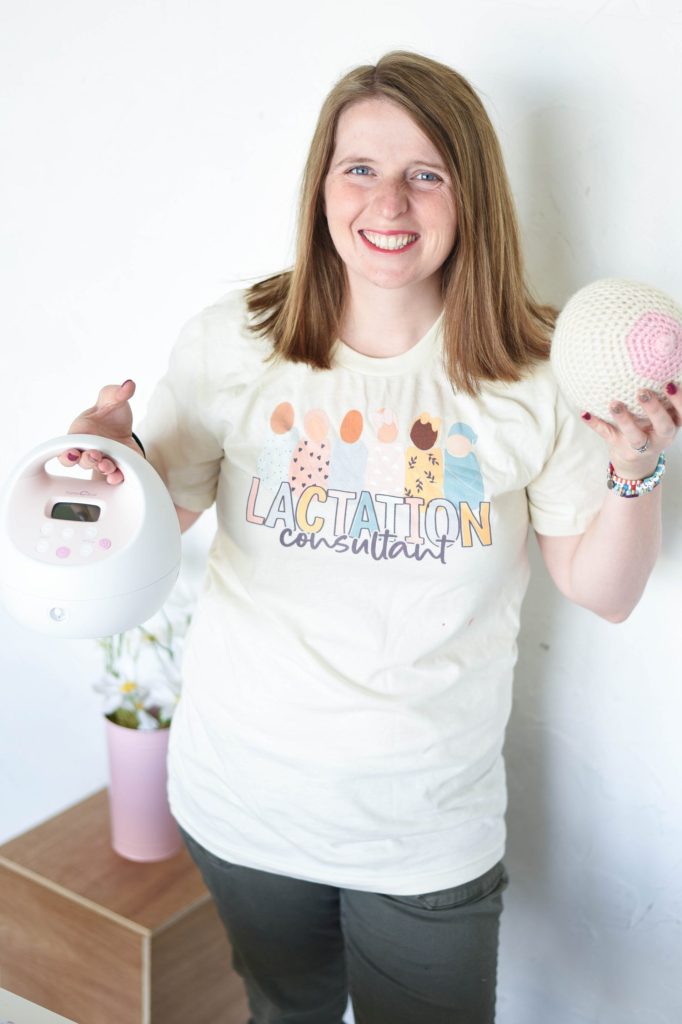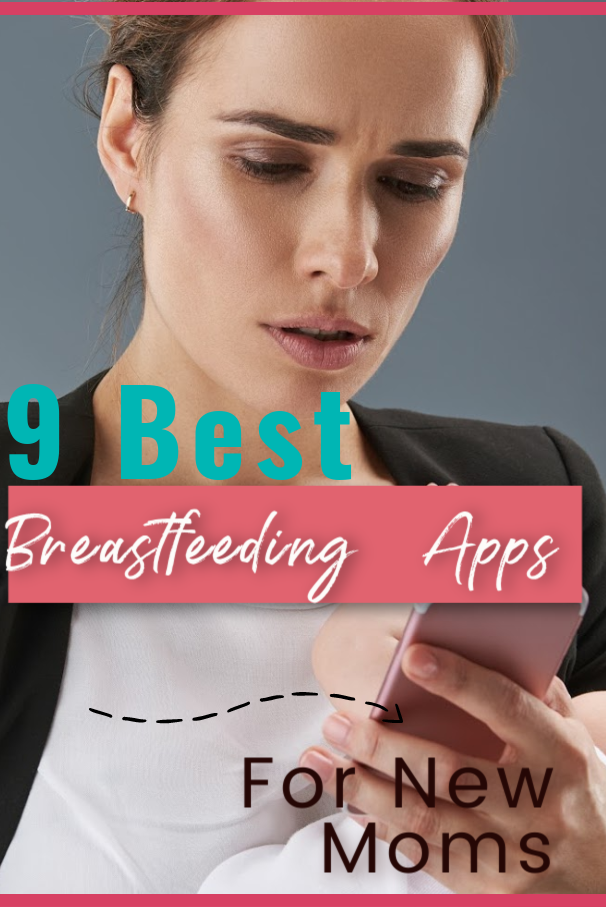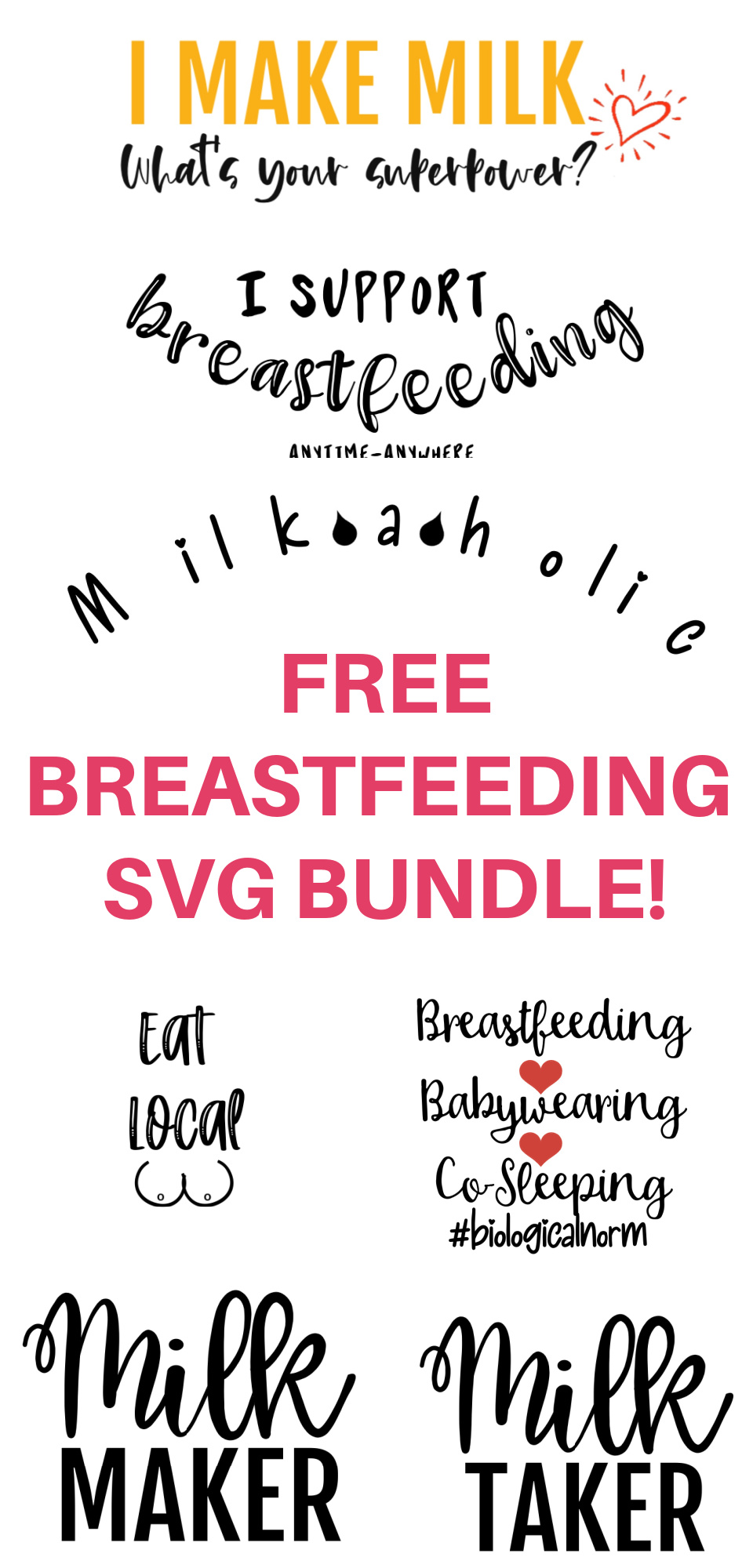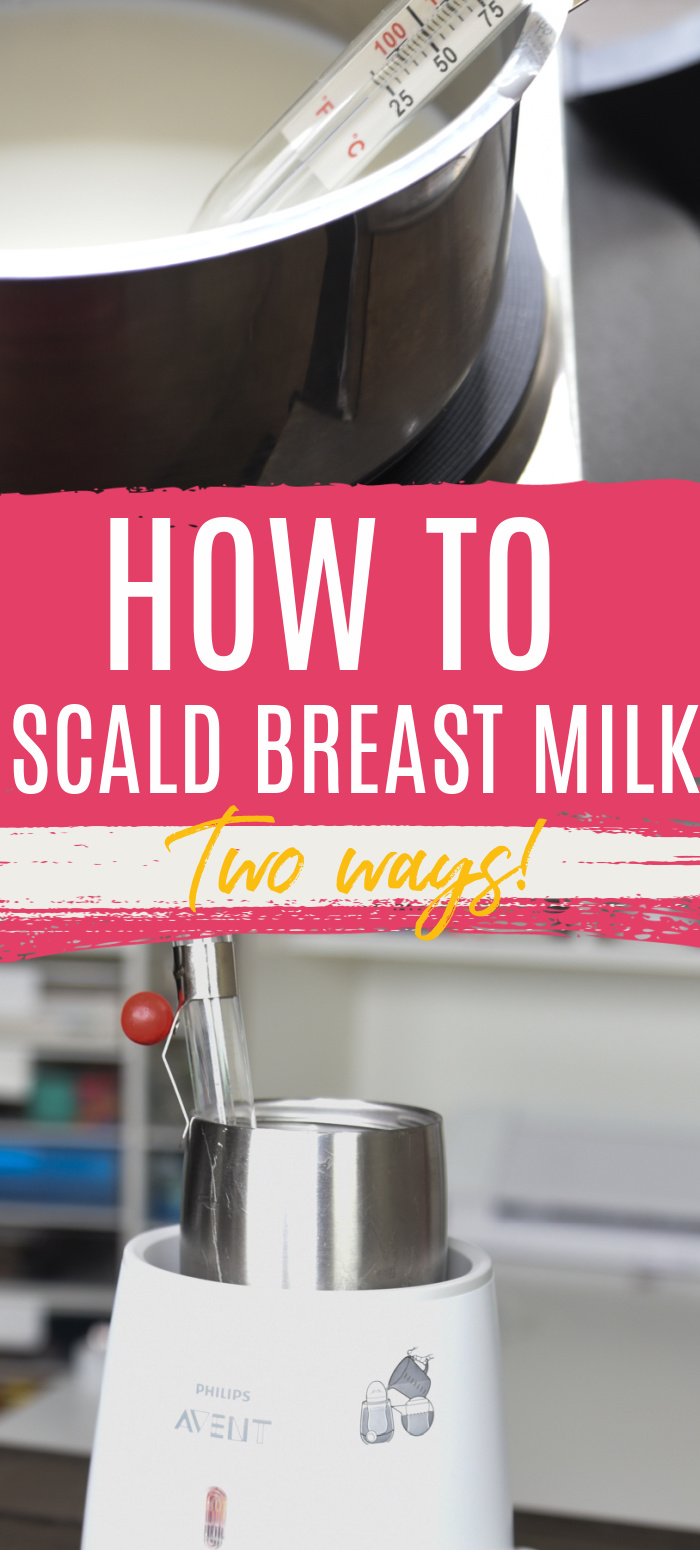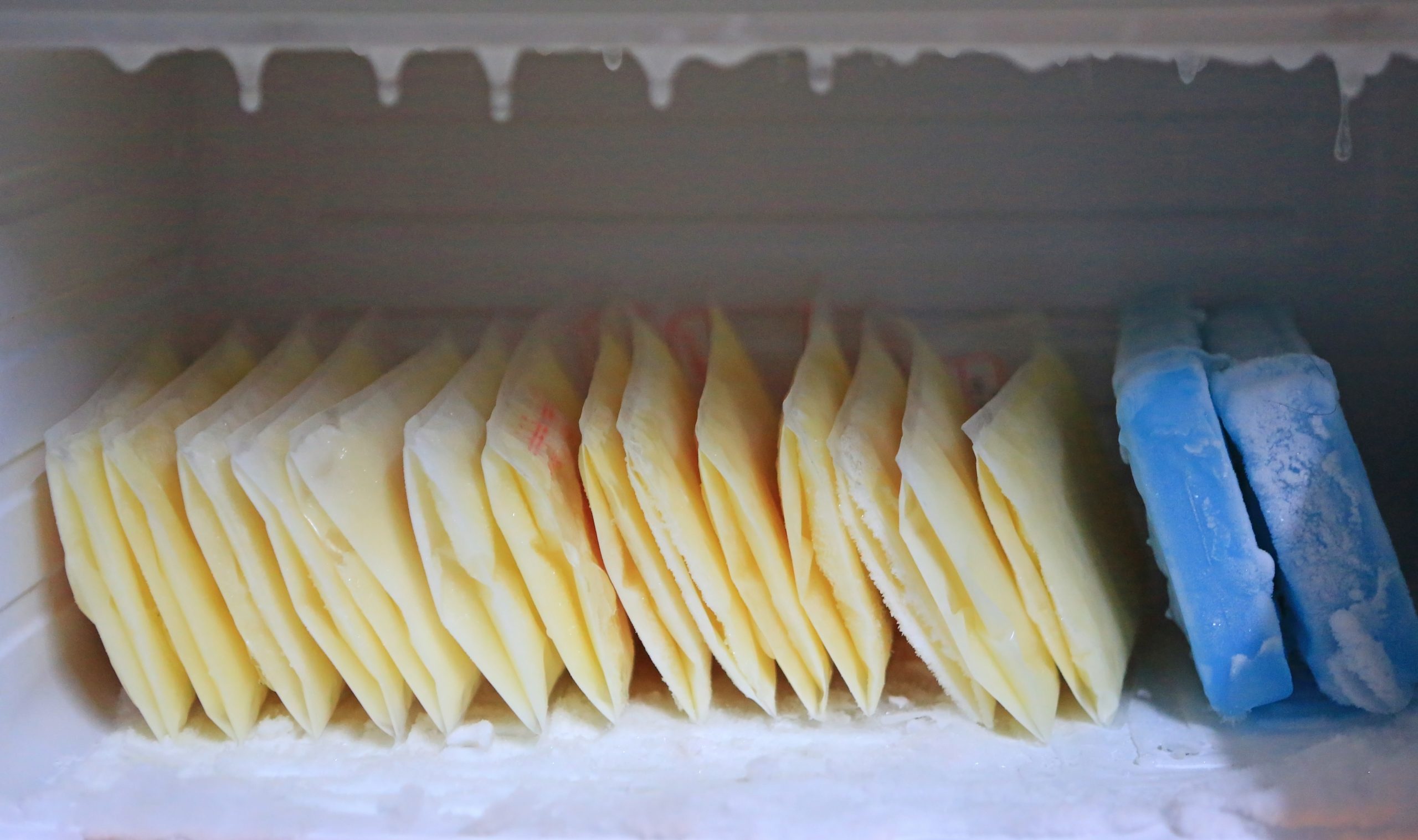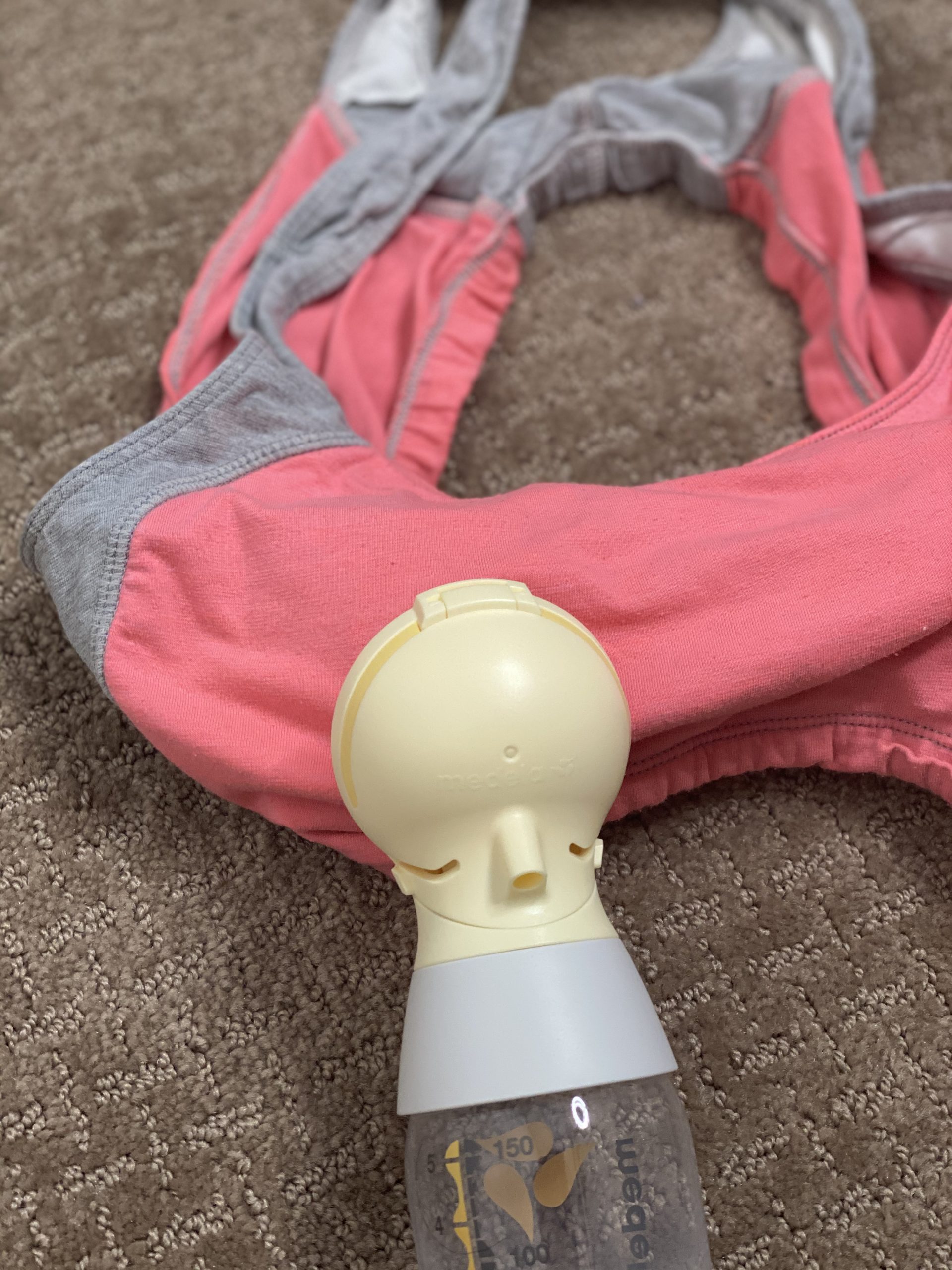I was one of those moms – the ones who didn’t understand how a person could have trouble nursing. Then I had my second son, and I got a big dose of humble pie. Here are 17 truths about breastfeeding and breastfeeding tips for new moms.

When I was pregnant with Jack, I don’t remember ever thinking about how I was going to feed him.
At Thanksgiving dinner, my sister asked if I was planning to breastfeed, and I just shrugged and said, “I dunno, probably!” I figured I’d see if it worked. I’d seen my sisters all nurse their babies, and I figured I’d probably just do the same.
Fortunately for me, Jack was an easy baby to nurse. When they gave him to me after he was born, he was already rooting. He latched right away and loved to nurse. I had a little bit of discomfort the first couple of weeks, but that eventually went away.

I ended up nursing him until he was about 22 months old.
When I found out I was pregnant with Oliver, I figured everything would be the same. I read up on breastfeeding a little bit, ordered a few nursing supplies, and went through my whole pregnancy assuming it would go off without a hitch.
Well, it started out that way! All the nurses in the Mom/Baby unit were so happy to see how well he was latching, nursing, etc. My milk even came in before we even left – my nurse was a lactation nurse, and she almost started crying. I did, too!

Little did I know how difficult the next few months would be.
Long story short, Oliver ended up having trouble gaining weight for awhile. I got mastitis and massive plugged ducts when he was about six days old. While he still continued to gain weight, we had a pediatrician who gave me bad advice, which caused a lot of stress, and he didn’t gain weight for a few days. He also ended up becoming jaundiced after we came home from the hospital, which didn’t help.
Our doctor had me pump for 24 hours, and he still didn’t gain weight, despite having nearly 30 ounces of breast milk (which was actually quite a bit more than he needed at 8 days old.) He ended up being labeled Failure to Thrive and admitted to the hospital. The pediatrician there got us back on track, and he started gaining weight well for a little bit.
We still don’t know why he didn’t gain weight (though I think it was partially due to stress.)
Then it slowed. After our pediatrician tested him for just about every issue under the sun, she finally listened to us and prescribed him a reflux medicine.
His weight took off from there (thanks to the medicine, a good infant probiotic, and giving him a little bit of extra creamy milk once a day), and at nine months, Oliver is a happy nurser who has gone from the first to the 15th percentile. His latch got better, we haven’t had to give him extra ounces of the “extra creamy milk” for months, and everything is going well.
After a few months, his latch finally improved (he had a very tight upper frenulum that made it hard for him to flange his upper lip,) and I was no longer in horrible pain every time he latched.
He became more alert, which made it easier to get him to nurse. One mistake I made was letting him go more than three hours when he was newborn during the day. I think this led to my mastitis.
However, through it all, I’ve learned a lot. I’ve developed a passion for breastfeeding that makes me wish I had the time and money to become a lactation consultant. I’ve realized that it’s not always a walk in the park – that despite a person’s efforts, things might not go as they planned. I realized that even though nursing was a walk in the park with Jack didn’t mean everything would go smoothly with subsequent babies.
I wanted to share some “truths” about breastfeeding that every mom should know. There are some wonderful parts about breastfeeding, and there are some difficult parts. And I think knowledge is power.
I’ve asked some other moms what they think other moms should know, and some of those tips have been included in this post. Enjoy!
No One Journey is the same
Every mother’s breastfeeding experience will be different – even from child to child. You can read all the books, take all the classes, and watch all the videos, but nothing can prepare you more than actually breastfeeding.
Some babies will be born early and have to stay in the NICU, which can make breastfeeding a little trickier.
Some babies will have tongue ties that prevent them from latching correctly. Some babies will have to be feed via a G-tube. And some babies will nurse perfectly from the start. It’s so important to remember that your journey is yours – embrace any bumps that may come along the way.
Some babies will have to be feed via a G-tube. And some babies will nurse perfectly from the start. It’s so important to remember that your journey is yours – embrace any bumps that may come along the way.
And some babies will nurse perfectly from the start. It’s so important to remember that your journey is yours – embrace any bumps that may come along the way.
And more importantly, don’t judge another mother’s journey. Whether she breastfeeds for two years or two days – pumps and bottle feeds or doesn’t even own a bottle – or supplements with formula – it doesn’t matter. Which brings me to my next point . . .
You Need Support
And I’m not just talking about a good nursing bra (though that’s important, too. These nursing bras are really popular!)
Have you ever heard the phrase, “It takes a village to raise a child?” Well, I think it takes a village to breastfeed, too. Unfortunately, many women don’t have that luxury. In many of the groups I’m in, there are countless women who come frustrated because their husbands wants them to use formula instead, her work refuses to provide an adequate place for pumping, or her family thinks breastfeeding is weird.
It makes me sad. If I had gone through everything we went through with Oliver alone, I probably would have gone crazy. I knew that I wanted to breastfeed. I knew that I could breastfeed. And I was grateful to have a husband, mother, and lactation consultant all on my side.
Not everyone has that luxury, which is why I created the Breastfeeding Mama’s Support Tribe on Facebook. I just started it a few months ago, but it’s grown quickly. I love to see moms helping and supporting one another, and I love being a part of it. If you need support, please come join!
It Can be Emotional
I never realized how emotionally tied I was to breastfeeding Oliver until the possibility that I wouldn’t be able to was on the table. I had trouble producing a lot of milk there for awhile, and it was so emotional. At one point, I was so proud of any extra milk I was able to pump – Forrest would often say, “You really take your ability to produce milk personally!” And I did. I was emotional every time we went in for a weight check. I was emotional every time Oliver would vomit everything he ate. I was emotional every time he would latch without screaming. I was emotional every time it would take 30 minutes for him to latch – I would cry right along with him.
Then there are things that will make you emotional – like if you have to feed your baby a bottle for the first time. So many women will say that this was hard for them. I know it was hard for me.
It’s not just the “lazy” option
It always makes me laugh when people say breastfeeding is the lazy option. For some, it probably is. 9.5 months into nursing Oliver, I’d definitely say it takes less work for me than doing anything else. It doesn’t take much effort at all!
However, in the early months where we really struggled, it was anything BUT lazy. I was feeding him every 60-90 minutes. I pumped multiples times a day, which meant I had to clean pump parts and bottles daily. I hardly slept because we weren’t supposed to let him go more than 2-3 hours without eating. I was stressed constantly. We had to go to the doctor for weight checks all the time.
It was not fun! And it was certainly not lazy.
In the Facebook group, a few moms have said that they didn’t realize how emotionally and physically exhausting it could be. Some moms don’t feel comfortable nursing in public, so they have to plan around their baby’s schedule or make sure to pump before they go out. Breastfed babies will sometimes wake more in the night than formula-fed babies, which can lead to being really tired!
Some people won’t understand
Some people just don’t “get” breastfeeding. They don’t understand why, if it doesn’t go as planned, you get emotional. They don’t get why saying, “Well just use formula!” isn’t an appropriate response when you are feeling discouraged or frustrated. They don’t get why you don’t want to nurse your baby in a bathroom stall.
In a perfect world, everyone would be supportive of breastfeeding. Unfortunately, that’s not the case. Especially in the USA. The best thing you can do is educated those around you and hope for the best. You can get offended, but in my experience, it’s best to just keep nursing your baby, not get combative, and hope they will come around.
Leaking
Ah, leaking. This is what my first few months of nursing seemed to constantly be full of. I don’t think people tell you just how much you leak – and how easily it can happen. Hear a baby crying at the store? Hope you have some nursing pads! Baby sleep a little longer through the night? Don’t be surprised if you wake up in a puddle!
I remember just standing there in my parent’s entryway and all of the sudden I heard a dripping sound – I was dripping tons of milk on the ground. When I would nurse on one side, I would often leak a ton of milk on the other – it was maddening to see all that liquid gold go to waste.
My best piece of advice? Invest in quality nursing pads. I’ve used disposable ones and reusable ones, and they both are helpful. However, I greatly prefer reusable ones. They are a bit more cost-effective, they are more comfortable, and they just look nicer!
I’ve tried a few different brands, and I have to say, Bamboobies reusable nursing pads are by far my favorite. Not only are they a company local to where I live (based in Boulder, Colorado), but they are eco-friendly and super comfy.
If you like disposable ones, though (which is understandable!), I really like the Lansinoh brand.
Breast milk is pretty cool
It really is. Breast milk has so many benefits beyond just feeding your baby. It is specifically designed to help YOUR baby thrive. Awhile back, there was a post going around where a mom showed breast milk she pumped when her baby was sick versus not sick.
The “sick” milk was more yellow than the “well” milk – it more resembled colostrum (the amazing kind of breast milk you produce when baby is just born.) It showed that your breast milk really does adapt to your baby’s circumstances.
I remember reading that when you kiss your baby on the cheeks, you take some of the pathogens from their face, and your baby creates antibodies for them. Pretty awesome, right? Here are a few other cool things breast milk can do:
- Natural treatment for conjunctivitis
- Helps heal cracked or bleeding nipples
- Treatment for cradle cap, mild eczema, and baby acne
- Help with itchiness (mosquito bites, poison ivy, chicken pox, etc.)
- Treatment for clogged tear ducts
- Congestion – just squirt a little bit up babies nose like saline
- Teething pain relief (you can make a breast milk popsicle for them to chew one, or you can rub it on their gums)
- Treatment for rashes (such as diaper rashes)
- Throwing up – it’s easier for a baby to keep down, or at least, retain the nutrients from breast milk.
Nipple Shields Are Not the Devil
Depending on who you talk to nipple shields are either a gift from heaven or something that should be avoided at all costs. Me? I think it just depends. Should you use a nipple shield just because you are feeling a little bit of discomfort? No, probably not. They have some “risks” involved (such as the potential to decrease milk supply, baby not being able to nurse without it, etc). However, I know many women who would not have been able to successfully breastfeed without the assistance of a nipple shield and praise the day they were invented. There have been advancements in them in the recent years, so they are a lot thinner than they used to be.
The use of a nipple shield is best done under the care of a lactation consultant who can show you how to use it correctly. They can also help you wean off of it, which can be difficult.
Trust yourself and your body
So many women worry about if their baby is getting enough. Chances are, they are. Just trust yourself and feed on demand. The first six weeks is absolutely crucial when it comes to establishing your supply. Don’t try and get your baby on a schedule – just nurse frequently. If they are super sleepy, do everything you can to make sure they eat every two hours, at least. I truly believe in the power of positive thinking.
One night when I was so stressed out and my supply seemed so low, I looked up a breastfeeding hypnosis video. I know it seems totally hokey, but I fell asleep listening to it, and my milk supply was better the next day. I think it probably just relaxed and calmed me down, which can help with supply, but it was something I really appreciated.
Watch your baby and make sure they are content and having enough wet and poopy diapers. Try not to stress about how much they are eating. It’s hard – I know. But it’s important to trust your body if all signs say things are good.
Start out right
I think there needs to be more education available and encouraged for women before their babies arrive. There are often breastfeeding classes available at hospitals, but I honestly didn’t feel like they were advertised very much. At my hospital class, they covered it shortly, but they didn’t really tell you much.
I’ve heard of plenty of women (myself included) who didn’t really know what they were doing before their baby was born! However, there are a few things you can do from the start that can really affect your ability to have a successful breastfeeding relationship, including:
- Skin to skin immediately after baby is born (assuming there are no complications)
- Skin to skin as much as possible
- Latch baby frequently – I wouldn’t let baby go more than two hours without nursing (at least until they reach their birth weight again)
- If you have a planned c-section, you can talk to your care team about if skin-to-skin and breastfeeding can happen immediately after.
- Avoid bottles and supplementing if possible
- If you do need to supplement (due to large amount of weight loss, low blood sugar, etc.) use a syringe, cup feeding, or an SNS (with the help of a lactation consultant) to help prevent nipple confusion
- If you are engorged, avoid pumping to relieve pressure. Hand expressing can be a better option to avoid overproduction.
More Information: Newborn Breastfeeding: Everything You Need to Know
It can be painful
There is an oft-repeated statement that breastfeeding shouldn’t hurt if it is done correctly. I think this can be untrue – simply because, I had multiple people tell me everything looked great, and I was in pain. So many women I’ve talked to have said that they have been told everything looked great (latch was perfect, baby was gaining weight, etc.) but they still were in a crazy amount of pain as well.
The first few weeks of breastfeeding takes time to adjust. You might just feel a little raw, or you might feel pain. Everyone has a different pain threshold, and while something may seem just a little uncomfortable for one mom, it may be extremely painful for another.
I do think that if you are having extreme pain, something else might be going on. For me, I literally had to grit my teeth and keep from crying for awhile there with Oliver. We finally realized it was because I was experiencing vasospasms, which are very painful! I used Lansinoh TheraPearl 3-in-1 Hold or Cold Breast Therapy. These are GREAT for mastitis and plugged ducts (more on that in a second), but also for helping with vasospasms and Reynaud’s Syndrome.
As I already mentioned, Oliver didn’t flange his upper lip out very well due to a tight upper frenulum (also known as a lip tie.) This caused pain and some issues with him latching. We found out later he also had a posterior tongue tie (but at that point, he was nursing better, so we didn’t revise it.) Tongue ties can be the cause of pain and nursing problems!
A few other things that may feel painful – your milk letting down (it feels kind of like pins and needles. Some women may never experience this), baby clenching down, an incorrect or poor latch, etc. If you are experiencing pain, and it just isn’t going away, don’t hesitate to reach out to a lactation consultant. This is an excellent video on how to achieve a pain-free latch.
I highly recommend a quality nipple cream. I really like the Earth Mama Angel Baby nipple butter – it worked really well. However, my favorite treatment is just coconut oil!
Something else I used that helped a lot was doing a nipple soak in warm, saltwater for about a minute.
Mastitis and Plugged Ducts
These are two of the worse things a breastfeeding mom can have. Mastitis is sometimes called “The Boob Flu”, and I think that’s pretty accurate. I had it a few times with Jack, and just six days after Oliver was born. I spiked a fever, got super nauseated, and just felt miserable. We ended up going to the ER, where they just gave me a bunch of medicine that made me really loopy and ruled out appendicitis and gallbladder issues. For some reason, they didn’t think to check for Mastitis, which I discovered on my own the next day. I had very red, swollen breast tissue, and a plugged duct the size of a kiwi. It was horrible!
Some people will use natural treatments for mastitis, but if it’s bacterial, it needs to be treated. Don’t avoid the doctor or antibiotics, because it can get worse. I have a friend who started going septic from an untreated case of mastitis.
Plugged ducts don’t always mean you are going to get mastitis, but they are good to try and avoid. If you have them, there are different techniques for getting them out. The best way? Get baby to nurse it out. I tried all sorts of techniques, but the best one I found was getting on all fours and nursing. It was SO weird, but it was the only thing that worked. I had that huge plugged duct for about four days, and that technique finally got it out.
Here is more information on Mastitis and Plugged Ducts – Surviving the Boob Flu: Mastitis Symptoms, Treatments, and Prevention.
Find an IBCLC
I never realized how amazing IBCLCs (International Board Certified Lactation Consultants) was until I struggled with nursing. These women are amazing. They have dedicated their lives and countless hours to helping women succeed with breastfeeding. Their value cannot be discounted, and I recommend finding one even if you don’t anticipate any troubles.
I truly believe that had I not found the IBCLC that I did when Oliver was having trouble, I probably wouldn’t have been successful in nursing him. She held my hand through everything, gave me wonderful advice, and helped me reach the goals I wanted.
Not all IBCLCs are created equally, so ask around. Join a local breastfeeding group and ask for suggestions. Most of them are great, but I have encountered a few that give less than stellar advice. Most hospitals will have a lactation consultant on staff, but they may not always be an IBCLC. If you don’t jive with one, don’t be afraid to find another! If you are in the Denver area, I am happy to give suggestions for ones I know are excellent.
Here is the IBCLC directory to help you find one!
Not All Pediatricians are Breastfeeding Friendly
I need to preface this – I love pediatricians. They are, for the most part, wonderful, well-meaning people who are there to help your child grow and thrive. Unfortunately, the training for breastfeeding in medical school is seriously lacking. I’ve read many articles where pediatricians say that the training they get on nutrition and breastfeeding probably amounts to one day during medical school. Aka, not very much.
I think this is unfortunate, and it’s something that should change. I honestly believe that women would be more successful in reaching their breastfeeding goals if pediatricians were more trained in it, or they were more willing to refer to an IBCLC if necessary. The old pediatrician we had for our boys was very kind, but I believe 100% that some of our issues could have been avoided had she been more informed about breastfeeding. She honestly seemed offended when I told her I sought the help of a lactation consultant.
I have a whole post that I will be sharing sometime about this, but I recommend asking around in your area for the names of a breastfeeding friendly pediatrician. There are pediatricians who have taken it upon themselves to educated themselves on breastfeeding, or at least have an IBCLC on staff.
More information: Is Your Pediatrician Breastfeeding Friendly? 13 Questions to Ask.
There Are Options For Supplementing
The most important thing is that your baby is fed. No one should ever starve their baby in an attempt to breastfeed (and fortunately, that usually isn’t the situation.) However, if supplementing becomes necessary, it doesn’t always have to be with a bottle or with formula.
While some babies can take to a bottle easily from the start, many babies will experience nipple confusion if it’s introduced too early. This can make some moms turn into exclusive pumpers unintentionally or introduce formula before they want.
In the early days, a great method for supplementing is with a medicine syringe. Baby doesn’t even need very much, but it can be very effective. You can also supplement with a medicine cup or a spoon or an SNS. All supplementing should be done under the care of an IBCLC.
The hospital I delivered at had donor breast milk from a local milk bank available if needed, which I thought was awesome. This milk is pasteurized and completely safe.
There are some groups (such as Human Milk 4 Human Babies) where moms can donate milk to other mothers in need. I have been a recipient as well as a donor in these groups, and they are amazing. Some believe they aren’t totally safe, but in my experience, it is a wonderful community of mothers wanting to help one another. Of course, it’s a personal choice!
More information: Donor Breastmilk 101: Everything You Need to Know
It doesn’t make you a better mom
Breastfeeding isn’t something that makes you a better mom. It doesn’t make you a better mom than your friend, or sister, or mom, who formula fed. Remember that. You can certainly feel proud of breastfeeding. I know I am! But you should never make another mother feel bad because she couldn’t or just chose not to breastfeed. Some moms really wanted to breastfeed and couldn’t for one reason or another – what they need is encouragement – not to be made to feel like they are a second-class mom.
In a perfect world, all babies would be breastfed, and it would be easy for that to happen. However, it’s not a world like that, and we, fortunately, have lots of options for moms to help their babies thrive! A formula fed baby’s mom shouldn’t be judged, and neither should a breastfed baby’s mom. I think most moms have their baby’s best interest in mind.
It’s so, so rewarding
At the end of the day, there is truly nothing more rewarding than seeing your sweet baby look up at you as they nurse. Locking your eyes with your baby as they nurse is such a sweet experience, and it’s something I love. It makes me happy that my baby knows I will feed him when he needs it. It makes me laugh when he starts to pant as soon as I say “mama milk”. I love looking at his rolls and double chin and know that I contributed to that! I love the bond that it has created between us, and even though he will never remember the sweet moments I’ve had holding him as I nursed him, I will. And it makes all the struggles we had worth it.

Phewth! If you made it this far, you definitely deserve a prize! I hope that whether you are about to start breastfeeding, in the midst of it, or your breastfeeding days are behind you, you enjoyed reading this! Please chime in with what you think other moms should know or what you wish you’d known yourself!
Just for fun, here are a few of my tried and true breastfeeding products, some of which I have already mentioned:
- Bamboobies Nursing Pads (reusable and disposable)
- Earth Mama Angel Baby Nipple Cream
- Homemade Shawl Nursing Cover (Bamboobies offer a similar one if you don’t want to make one yourself!)
- Avent Comfort Double Pump (though I have heard GREAT things about the Spectra Pumps!)
- 3-in-1 Therapearls
- Medela Harmony Manual Breast Pump
- Dr. Brown’s Bottles with Preemie Nipple (great for breastfeeding babies)
- Hatch Baby Scale (expensive, but it has some cool features, and it was heaven-sent for us. A less expensive scale that still works well is this one).
- How to Get a Breast Pump Through Insurance

